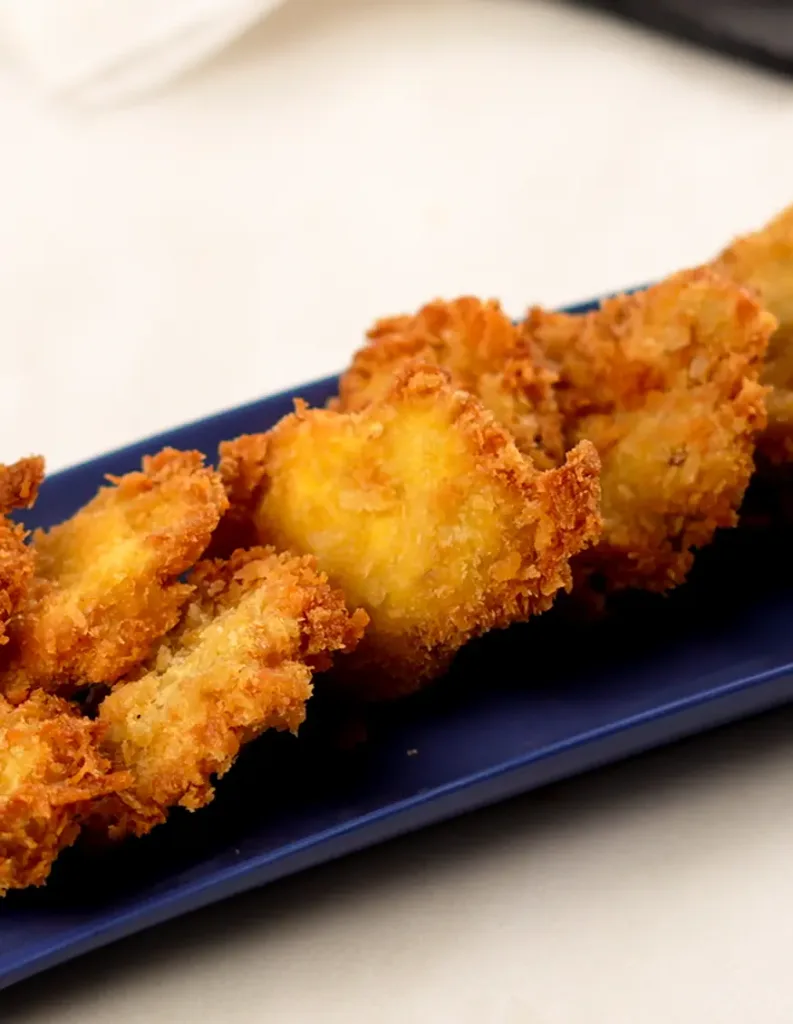
Start by gently wiping the lion's mane mushroom with a damp cloth or use brush to remove any dirt or debris. Avoid washing them under running water, as they can absorb too much moisture and become soggy.
Examine the mushroom for any tough or discolored parts. Use a sharp knife to trim off these areas, ensuring you only keep the tender and fresh parts of the mushroom. Usually, the stem near root is hard so remove it.
Trim any rough parts, usually near roots, and cut the mushroom into 1/2-inch thick slices.
If you have leftover lion's mane raw mushrooms, store them properly to maintain their freshness. Wrap them loosely in a paper towel and place the raw mushrooms in the same packaging container. Then, store them in the refrigerator's vegetable crisper drawer. Consume them within a few days for the best flavor and texture.
Mix 100g flour-maida and half quantity of all your seasonings in a bowl to create a dry mixture for coating.
In a separate bowl beat 2 eggs and add the remaining quantity of your seasonings.
Coat the mushroom with dry mixture first, then dip in egg mixture to fully cover all sides and finally coat well with panko bread crumbs.
Heat vegetable oil in a deep saucepan or deep fryer to approximately 170°C (350°F). If you don't have a temperature gauge use a pinch of flour - maida and drop it hot oil. If the flour sizzles and immediately floats to the surface, the oil is likely at the right temperature.
Fry the coated mushrooms in oil for 5-6 minutes till golden brown.
Carefully take out golden brown Lion's Mane nuggets and serve them with Tartar sauce
Always use sharp knife, when you use a dull knife to cut, you need to apply more force. As a result, the knife is more likely to slip and this increases the risk of injury.
In order to prevent contamination, it is important to clean your knife as soon as you’re done using it. Leaving your knife on your cutting board or in a sink full of soapy water clutters your kitchen and creates opportunities for contamination and injury.
Always use a cutting board when cutting ingredients. This will allow you to cut consistently and protect your work surface in the process.
Never leave your stove unattended while cooking. Stay in the kitchen while you're frying, grilling, boiling or broiling food. If you have to leave the room—even for just a moment—turn off the stove.
Keep cooking equipment clean. Crumbs in a toaster, built-up grease on the stovetop, and excess dust behind your appliances are fire hazards.